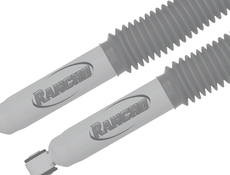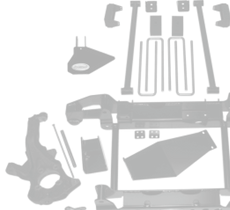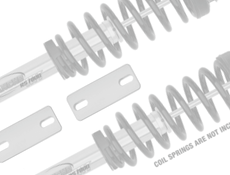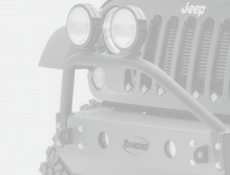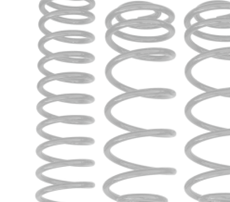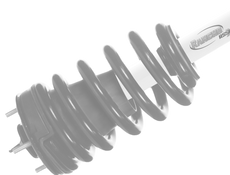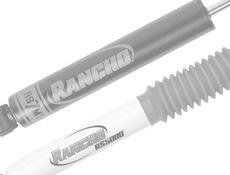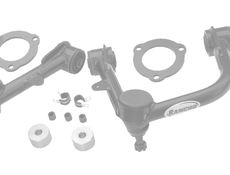Leveling vs Lift Kit

SHOULD I LIFT OR LEVEL MY TRUCK?
Whether you want to hit the trail or just want a new look for your truck or SUV, a leveling kit or lift kit could be the perfect way to customize your vehicle. But how do you decide which is right for you? While both leveling kits and lift kits are designed to raise the body of your vehicle away from the axles to allow the use of larger tires and to increase ground clearance, each have distinct features. Read on to learn the difference between a leveling kit and a lift kit.

LEVELING KIT
Designed to raise the front of the vehicle to match the rear, a leveling kit gives your vehicle an even stance from the front to the back. Truck and SUV owners looking for a balanced look can benefit from adding a leveling kit to their vehicle.
On most trucks and SUVs, the rear sits higher than the front to prevent it from sagging when extra weight is added to the bed or back of the vehicle. A leveling kit takes care of the nose-down factory rake stance that the truck or SUV comes equipped with and delivers a better-looking stance. It can also help even out the extra weight of a front-end winch.
Typically adding 1.75"-2.5" of lift to the front of the vehicle, a lift kit gives you a bit of extra ground clearance and allows you to install slightly bigger tires. You’ll maintain the factory ride while leveling out your vehicle at an affordable price with easier installation (as compared to a lift kit).

LIFT KIT
Delivering increased height and ground clearance that can improve off-road performance, a suspension lift kit elevates both the front and rear of the vehicle. If you’re getting your rig ready for an afternoon out on the trails, a lift kit might be for you.
With a lift kit, you can get 3-6" of elevation which not only increases the ground clearance of your ride but also gives you the flexibility to add bigger tires. However, do keep in mind that the higher that you lift your vehicle, the higher the center of gravity is. This can make the vehicle unstable at higher speeds.
When deciding how much lift your vehicle needs, remember that vehicles come from the factory with bigger tires, meaning you might not need to add as much lift to put a larger tire on.
Perfect for tackling rough terrain and crawling over rocks, a lift kit typically contains components like upper control arms, adjustable control arms, radius arms (depending on application), CNC-machined steering knuckles, shocks, track bars, sway bar links, bushings and coil springs. These extra parts make a lift kit a more expensive and require a more complex installation than a leveling kit.

WHICH IS RIGHT FOR YOU?
When deciding which option is right for you, it comes down to how you’re using your vehicle. Take a close look at the activities you want to use your rig for. Are you planning to hit the trail, crawling over rocks, slogging through the mud and crossing creeks? Or is your rig a daily driver that rarely leaves the pavement?
If your weekends are filled with trail riding, you might need the off-road performance capabilities that a suspension system delivers. However, if your adventures see you traveling the highway, a leveling kit will give you the balanced look you want at an affordable price.
COMPARING LEVELING KITS AND LIFT KITS
Leveling Kit |
Lift Kit |
|
|---|---|---|
|
No |
Raises front and rear |
Yes |
|
Yes |
Raises front only |
– |
|
Yes |
Ability to add bigger tires |
Yes |
|
Yes (1.75"-2.5") |
Adds ground clearance |
Yes (3"-6") |
|
Easier |
Ease of installation |
Harder |
|
More affordable |
Expense |
More expensive |
|
Some improvement |
Improves off-road performance |
Yes |
|
Yes |
Retains factory ride |
Stability can be affected |
|
No |
Regearing |
Possibly; might need to get power back |
Learn more about performance shocks, find your performance suspension part, or find where to buy your shock or suspension part today.
The content in this article is for informational purposes only. You should consult with a certified technician or mechanic if you have questions relating to any of the topics covered herein. Tenneco will not be liable for any loss or damage caused by your reliance on any content.
